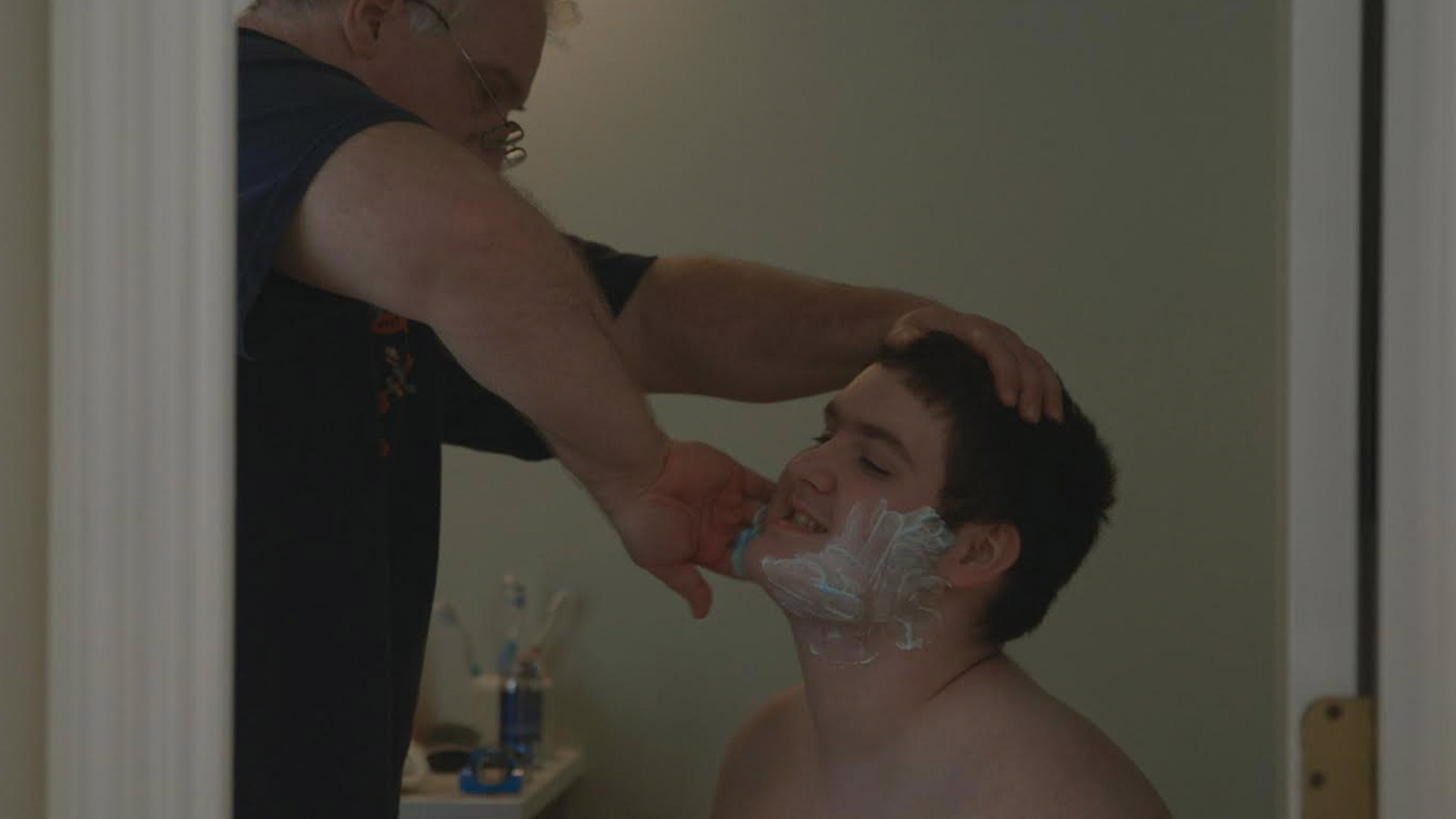Considering how often autism is depicted in movies and discussed on the nightly news (for the record, vaccines are not a cause), it’s sort of appalling how little we actually understand the disorder. Now, when I write that, I don’t mean “be aware of” but rather I’m referring to an actual understanding of how the condition affects people in their day to day lives. There’s a link missing between our visions of “Rain Man” savants and the less glamorous truth.
Fortunately, director Micha Hilliard provides a much needed glimpse into that reality with his short documentary, I’ll Be Fine—a simple, delicate portrait of Tim, a 19-year-old who has autism. This isn’t a showy short (the slow pacing might turn some internet viewers off), but it is an incredibly honest look at a family dealing with autism. Tim’s entire life has been lived under the shadow of the disorder, and in consequence, so too have the lives of his parents. In turn, this film is an inspiring depiction of how humans adapt in order to survive. For Tim’s parents, it’s been a journey pegged with difficulty and compromises. Yet, life continues to go on for all of them. It’s hard not to admire that sense of familial fortitude.
Fortunately for us, Hilliard allows Tim’s voice to take center stage. Too often in documentaries surrounding a particular condition, we never actually hear from the one living with it. No so here—Tim’s characteristic way of speech dominates the film, and as such, we’re giving an authentic look into his everyday trials and interests. His attraction to video games is especially prevalent and provides a fascinating glimpse to how certain sufferers of autism can form deeply rooted bonds with specific things. The look on his face when he sees a Nintendo press conference is priceless—a sense of awe that is rarely seen in someone his age. In that sense, Hilliard’s representation is that of a fully realized person. He’s not a nameless sufferer, but rather a young man with fears, hobbies, and dreams.
In order to make such an honest portrait, Hilliard, who is a relative to Tim and his family, actually moved into their basement, living with them for two months in order to get the footage and scenes he needed. This time and unfettered access was critical to the film’s success—it not only allowed him to establish trust with his subject but also caused the story itself to evolve organically.
As Hilliard relates, “The film I ended up making is different from the film I set out to make. In an effort to take charge and predict the course of the story, I started to rely more heavily on my subject’s parents…Rather than looking at the world through my subject’s eyes, I eventually observed him from his parents’ standpoint. I think the resulting film is truer to reality than what I had in mind.”
In effect, Hilliard’s film is not solely a portrait of a young man living with autism—it’s also a snapshot of a family working through the resulting trials. It’s this connection—this sense of selfless kinship—that makes I’ll Be Fine such a special short. There is no “beating” autism. But, there is a quiet wonder and sense of admiration that comes from watching a family face the challenges together.

 Ivan Kander
Ivan Kander